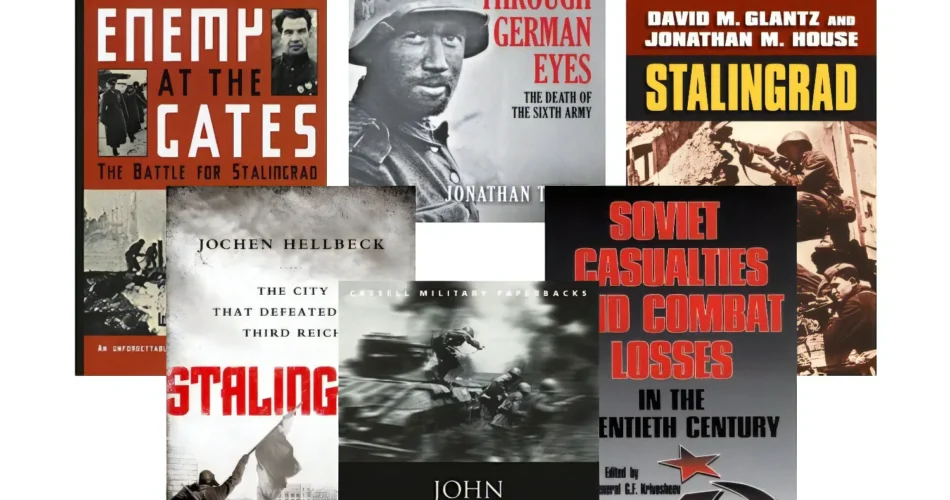The Battle of Stalingrad is one of the most extensively studied clashes of World War II, embodying the brutal conflict on the Eastern Front between Nazi Germany and the Soviet Union. The battle, which raged from August 1942 to February 1943, marked a turning point in the war due to its ferocity and the heavy losses inflicted on both sides. For those looking to deepen their understanding of this pivotal event, a wealth of literature in English offers varied perspectives and detailed analyses.
One of the foremost authorities on the Battle of Stalingrad is David M. Glantz, whose work is highly regarded for its thoroughness and scholarly insight. Glantz’s “Stalingrad: Triumph and Tragedy” is often considered the definitive single-volume work on the subject. For those seeking even more detailed coverage, Glantz and Jonathan House have written a comprehensive multi-volume series that delves deeper into the operational aspects of the battle.
For enthusiasts interested in the personal experiences of soldiers, Jason D. Mark’s books, such as “Death of the Leaping Horseman” provide a vivid account of the combat at the ground level, focusing on specific units and their roles in the conflict. Mark’s meticulous attention to detail and use of primary sources make his books a valuable resource for understanding the human aspects of the battle.
Another notable contribution is from Antony Beevor, whose book “Stalingrad” has been praised for its compelling narrative style. Beevor’s work helps readers grasp the strategic significance of the battle and its impact on the course of World War II, making it an excellent starting point for those new to the subject.
Alexei Isaev‘s “Stalingrad: City on Fire” offers a Russian perspective, providing insights into Soviet strategies and the resilience of the Red Army. Isaev’s research is particularly valuable for those looking to balance the often Western-centric accounts of the battle.
Key Points:
- 📘 Comprehensive Analysis: David M. Glantz’s works, especially “Stalingrad: Triumph and Tragedy,” are essential for anyone seeking a deep dive into the tactical and strategic elements of the battle.
- 🏅 Personal Accounts: Jason D. Mark brings the experiences of soldiers to life, offering a ground-level view of the combat through detailed narratives and exceptional research.
- 📖 Narrative Approach: Antony Beevor’s “Stalingrad” combines a strong narrative style with rigorous scholarship, making it accessible and engaging for a broad audience.
- 🌍 Russian Insights: Alexei Isaev’s “Stalingrad: City on Fire” provides a crucial Russian perspective, highlighting Soviet planning and execution of the battle’s critical phases.
- 📚 Diverse Perspectives: The array of books available ensures that readers can explore the Battle of Stalingrad from multiple angles, from high command’s strategy to the individual soldier’s ordeal.
These works collectively offer a rich tapestry of insights into one of World War II’s most brutal battles, providing both detailed scholarly analysis and captivating personal stories. Whether you are a seasoned historian or a new student of military history, the literature on the Battle of Stalingrad offers valuable lessons on leadership, strategy, and the human cost of war.

Please allow some time for comment manual approval.